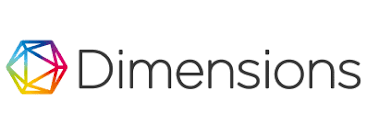Pengaruh Organizational Citizenship Behavior (OCB) dan Persepsi Atas Dukungan Organisasi terhadap Knowledge Sharing dan Jenis Kelamin sebagai Moderator pada Karyawan PT. Telekomunikasi Indonesia Tbk, Kandatel Yogyakarta
Abstract
Keywords
Full Text:
PDFReferences
Alavi, M. dan Leidner, D. E (2001). Knowledge management and knowledge management system: conceptual faundations and research issues. Mis Quarterly, 25(1), pp. 107-136.
Aulawi. H., Sudirman. I., Suryadi. K., dan Govindaraju. R. (2009). Knowledge sharing behavior, antecedent and their impact on the individual innovation capability. Journal of Applied Sciences Research. 5 (12): 2238-2246.
Berman, S.L., Down, J. and Hill, C.W.L. (2002). Tacit knowledge as a source of competitive advantage in the National Basketball Association. Academy of Management Journal, Vol. 45 No. 1, pp. 13-32.
Bock, G. W., Zmud, R. W., Kim, Y. F., dan Lee, J. N (2005). Behavioral intention formation in knowledge sharing: examining the roles of extrinsic motivators, social-psychological forces, and organizational climate: Mis Quarterly. 29 (1), 87-111
Cohen. W., dan Levinthal, D. (1990). Absorbtive capability: A new perspective on learning and innovation. Administrative Science Quarterly, 35, 128-152.
Cummings, J. (2004). Work Groups, structural diversity, and knowledge sharing in a global organization. Management Science, 50.
De Vries, R. E., Van Den Hooff, B. dan De Ridder, J. (2006). Explaining know-ledge sharing: The role of team communication styles, job satis- faction, and performance beliefs. Communication Research, 33, 115-135.
Dyer, G. dan McDonough, B. (2001). The state of KM. Knowledge Management. Vol. 4 No.5.
Eisenberger, R., Huntington, R., Hutchison, S., dan Sowa, D. (1986). Perceived organizational support. Journal of applied psychology, Vol 71 (3): 500-507.
Farh, J. L., Zhong, C. B., dan Organ, D. W. (2004). Organizational citizenship behavior in the people's republic of china. Organizational Science. 15; 241-253.
George, J dan Brief, A (1992). Feeling good-doing good. A conceptual analytic of the mood at work:organizational spontancity relationship. Psychology bulletin. Vol 76. 310-329.
Hinds, P. J., Patterson, M., dan pfeffer, J (2001). Bothered by abstraction: the effect of expertise on knowledge transfer and subsequent novice performance. Journal of Applied psychology. 86, 1232-1243.
Lin, C., P (2008). Examinition of gender differences in modeling ocbs and their antecedents in business organizations in taiwan. Journal Bus Psychol, 22, 261-273.
Lin, C., P (2008). Clarifying the relationship between organizational citizenship behavior, gender, and knowledge sharing in workplace organizational in taiwan. Journal Bus Psychol. 22, 241-250.
Lin, C., P. (2006). Gender differs: modelling knowledge sharing from A perspective Of social network ties. Asian Journal of Social Psychology (2006), 9, 236–241.
Lin Lu, Leung, K., dan Koch, P. T. (2006). Managerial knowledge sharing: the role of individual, interpersonal, and organizational factors. Management and Organization Review, Vol. 2, No. 1, pp. 15–41.
Moynihan, D. P. (2006). Managing results in the state government, evaluating a decade of reform. Public Administration Review, 66 (1), 77-89.
Nonaka, I. (1991). The Knowledge-Creating Company. Harvard Business Review.
Nonaka, I (1994). A Dynamic theory of organizational knowledge creation. Organization Science. 5: 14-37.
Nonaka, I dan Takeuchi, H (1995). The knowledge-creating company. New york: Oxford university press.
Nonaka, Ikujiro and Takeuchi, Hirotaka (1995). The Knowledge-Creating Company: How Japanese Companies Create the Dynamics of Innovation. Oxford: Oxford University Press.
Nonaka, I., dan Teece, D.J (2001). Introduction. Managing Industrial knowledge. London: SAGE Publication, Ltd.
Organ, D.W (1983). The motivational basis of organizational citizenship behavior. Reaserch in organizational behavior. 12, 43-72.
Organ,D.W.(1988). Organizational citizenship behavior: The Good Soldier Syndrome. Lexington, MA: Lexington Books.
Organ, D.W. (1997). Organizational Citizenship Behvior: It's construct clean-up time. Human Performance, 10, 85-97.
Oxford team. Oxford learner's pocket dictionary-3rd edition-. (2004). lik: Oxford University Press.
Pasaribu. M. (2009). Knowledge sharing (Meningkatkan Kinerja Layanan Perusahan). Penerbit PT Media Komputindo. Jakarta, 2009.
Podsakoff, P. M., Bachrach, D. G dan Bendoly (2001). Attributions of the causes of group performance as an alternative ekplanation of the relationship netween Organizational Citizenship Behavior dan Organizational performance. Journal of Applied psychology, 6, 1285-1293.
Polanyi, M. (1967). The tacit dimension. London: Reutledge dan Kegan Paul.
Rhoades, L. dan Eisenberger, R., (2002). Perceived Organizational Support: A review of the literature. Journal of applied psychology. Vol. 87; 698-714.
Sanchez. R. (2000). Tacit knowledge versus explicit knowledge approaches to knowledge management practice. Department of Industrial Economics and Strategy Solbjergvej 3 - 3rd floor.
Setiarso, B. (2006). Knowledge sharing: Siapa yang mengelola knowledge. Ilmu komputer.com
Settoon, R. P., Bennett, N., dan Liden, R. C. (1996). Social exchange in organiza-tions: Perceived organzational support, leader-member exchange, and employee reciprocity. Journal of Applied Psychology, 81, 219-227.
Shih. J., C. and Farn. C., K. (2008). Behavior and social influence in knowledge sharing: intention formation and the moderating role of knowledge type. T. Yamaguchi (Ed.): PAKM, LNAI 5345, pp. 3–13.
Weick K. E., dan Roberts. K. H. (1993). Collective mind in organizations: heedful interrelating on flight decks. Administrative Science Quarterly, 38, 357–381.
DOI: http://dx.doi.org/10.24014/jp.v8i1.183
Refbacks
- There are currently no refbacks.
REDAKSI : JURNAL PSIKOLOGI
Jl. H.R. Soebrantas Km. 15.5 No. 155,
Gedung Fakultas Psikologi UIN Sultan Syarif Kasim Riau
Kel. Tuahmadani, Kec. Tampan, Pekanbaru – Riau 28293
1.jpg)
.jpg)














